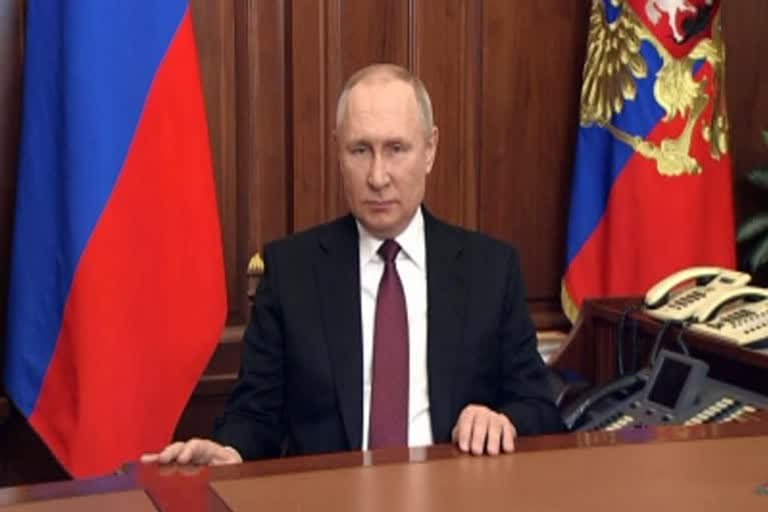Washington:There is a glaring carve-out in President Joe Biden's sanctions against Russia: Oil and natural gas from that country will continue to flow freely to the rest of the world and money will keep flowing into Russia.
Following Russia's invasion of Ukraine, Biden defended his decision to preserve access to Russian energy in order "to limit the pain the American people are feeling at the gas pump." But some academics, lawmakers and other analysts say that excluding an industry at the heart of the Russian economy essentially limits the sanctions and could embolden Russian President Vladimir Putin.
"Energy exports are the whole game," said Columbia University historian Adam Tooze, an expert on finance and European politics. Politicians in the United States and Europe chose to "carve out the one sector that might truly be decisive. I don't think Russia is blind to what is going on and it must indicate to them that the West does not really have the stomach for a painful fight over Ukraine."
As part of a broader international push, Biden announced sanctions on Thursday that target Russian banks and the country's elites, and restrict the export of vital technologies that are key for the military and economic development. The U.S. and its European allies intensified the sanctions on Saturday by announcing plans to freeze the reserves of Russia's central bank and block certain financial institutions from the SWIFT messaging system for international payments.
But the rules issued by the Treasury Department allow Russian energy transactions to keep going through nonsanctioned banks that are not based in the U.S. And administration officials stress that the sanctions are designed to minimize any disruptions to the global energy markets.
U.S. crude oil prices closed Friday just below $92 a barrel, right where they were in the days before Russia's invasion of Ukraine. Still, gasoline prices at the pump are up more than 33% from a year ago to a national average of $3.57 a gallon, according to AAA.
Inflation, at a 40-year peak and fueled in large part by gas prices, has hurt Biden politically with voters heading into the November elections.
The sanctions created a possible trade-off for the president between his political interests at home and abroad. By invading Ukraine, Russia has potentially fed into the supply chain problems and inflation that have been a crucial weakness for Biden, who now is trying to strike a balance between penalizing Putin and sparing American voters.
Biden specifically highlighted the Russian energy carve-outs as a virtue because they would help to protect U.S. families and businesses from higher prices.
"Our sanctions package we specifically designed to allow energy payments to continue," he said.
Those domestic politics — which also apply to many European leaders — produced a set of sanctions that Sen. Pat Toomey, R-Pa., on Thursday said he fears "will be inadequate to deter Putin from further aggression."
"The administration is intentionally leaving the biggest industry in Russia's economy virtually untouched," Toomey said. "The sanctions imposed on Russian banks, while welcome, may not isolate the Russian financial system from international activity. That's why the U.S. should impose crippling sanctions on Russia's oil and gas sector."
